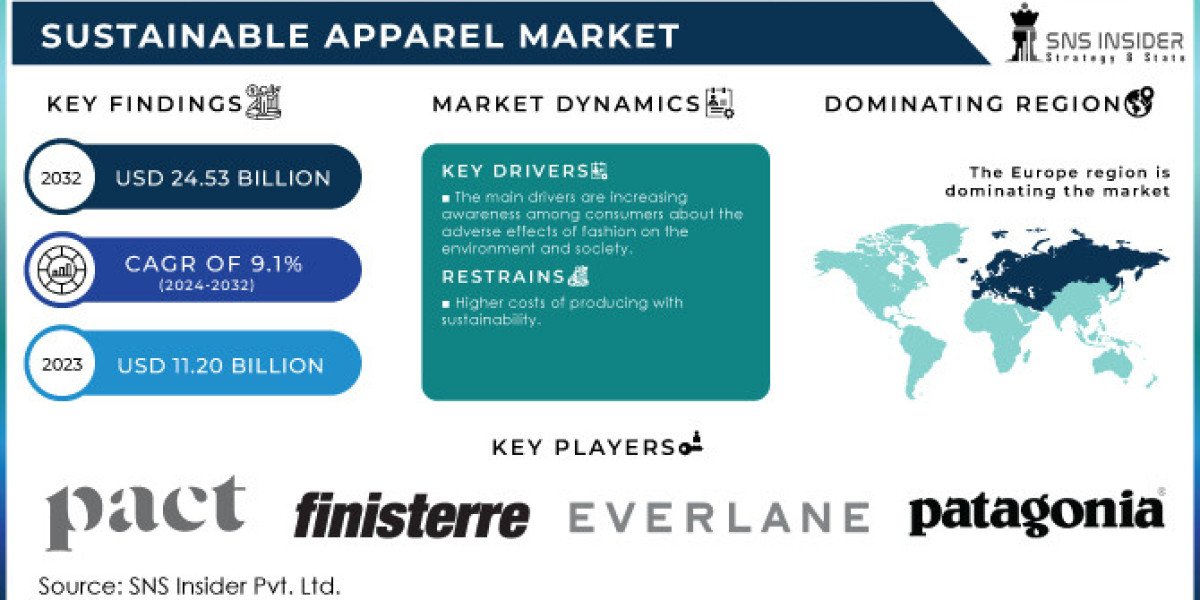The Sustainable Apparel Market Size was valued at USD 11.20 billion in 2023 and is expected to reach USD 24.53 billion by 2032, and grow at a CAGR of 9.1% over the forecast period 2024-2032.
The sustainable apparel market is experiencing rapid growth as consumers and brands prioritize environmentally friendly, ethical, and sustainable fashion practices. With growing awareness about the negative environmental impact of fast fashion, consumers are increasingly demanding eco-friendly materials, fair labor practices, and circular economy solutions. Sustainable apparel includes clothing made from organic fabrics, recycled materials, biodegradable fibers, and innovative textile alternatives that reduce carbon footprint and promote ethical sourcing.
Key Players in the Sustainable Apparel Market
- Some major key players in the Sustainable Apparel market are Pact Clothing, Finisterre, Everlane, Patagonia, Tentree, Kotn, Able, Boden, Carnegie and other players.
Future Scope and Emerging Trends
The future of the sustainable apparel market looks promising as brands invest in innovative textiles, circular fashion models, and ethical manufacturing practices. A significant trend is the adoption of bio-based and recycled materials, such as organic cotton, hemp, Tencel, and ocean plastic fabrics, reducing dependence on virgin resources. Additionally, blockchain technology is being integrated into supply chains to enhance transparency and traceability in ethical sourcing and fair labor conditions.
Brands are also exploring rental, resale, and take-back programs, reinforcing a circular economy approach that extends the lifespan of garments and minimizes textile waste. Consumer preferences are shifting toward minimalist wardrobes, with an emphasis on durability, timeless designs, and multifunctional clothing. With regulatory frameworks pushing for sustainability compliance, companies adopting eco-friendly strategies will gain a competitive edge.
Key Points
- Growing Demand for Ethical Fashion: Consumers prioritize eco-conscious and fair-trade clothing.
- Rise of Circular Economy: Focus on resale, rental, and recycling initiatives to minimize waste.
- Sustainable Material Innovations: Increasing use of organic, recycled, and biodegradable textiles.
- Technological Integration: Blockchain and AI-powered sustainable supply chains enhance transparency.
- Regulatory Push: Governments implementing stricter environmental and labor policies.
Conclusion
The sustainable apparel market is transforming the fashion industry, with brands embracing eco-friendly materials, ethical labor practices, and circular fashion models. As consumers and policymakers push for greater sustainability, companies that innovate and adopt responsible practices will thrive in this rapidly evolving sector.
Read Full Report: https://www.snsinsider.com/reports/sustainable-apparel-market-3920
Contact Us:
Jagney Dave — Vice President of Client Engagement
Phone: +1–315 636 4242 (US) | +44- 20 3290 5010 (UK)








